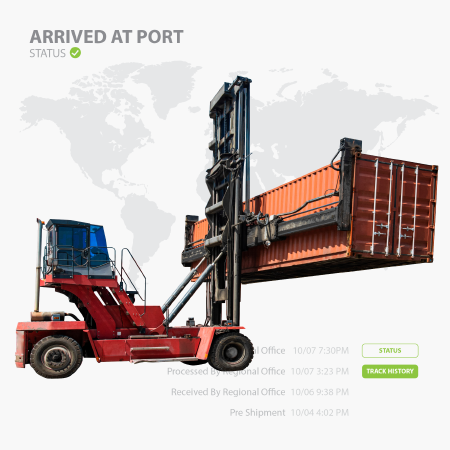The future of iGaming and sports betting in Brazil: navigating geolocation compliance
February 5, 2025

Brazil’s official launch of its regulated online sports betting market in January 2025 presents a golden opportunity for gaming operators worldwide. As a new sector in Brazil’s gambling market with an estimated $6 billion market potential, the country’s iGaming and sports betting landscape is poised for rapid growth. This opportunity is attracting various international operators looking to establish a foothold in the early days of the Brazil iGaming industry.
Succeeding in Brazil’s burgeoning market requires a deep understanding of its regulatory framework, compliance demands, and the critical role geolocation solutions will play in ensuring legal and secure operations. Let’s take a look.
The regulatory landscape in Brazil
The journey to Brazil’s regulated market began with the legalization of fixed-odds sports betting in 2018 under Law No. 13,756. After years of development, the Ministry of Finance’s Secretariat of Prizes and Betting (SPA) has established comprehensive regulations, including:
- Licensing fees: Operators must pay a licensing fee of BRL 30 million (~$5.9 million) for up to three brands, valid for 5 years.
- Geolocation compliance: Strict rules mandate accurate geolocation systems to verify users’ physical presence in Brazil before placing bets.
- Data compliance: All operators must adhere to Brazil’s General Data Protection Law (LGPD), ensuring secure handling of users’ location and personal data.
On January 1, 2025, the market launched with 66 authorized operators, including industry leaders like BetMGM, Caesars, and bet365.
Why geolocation compliance is critical
Geolocation compliance is already a cornerstone of operational integrity in Brazil. The SPA requires systems that:
- Verify users’ locations: Platforms must accurately determine a bettor’s physical location within Brazil and re-verify it dynamically every 30 minutes during sessions.
- Prevent location spoofing: Operators need tools to detect and block VPNs, proxies, and other location-masking methods.
- Secure data storage: Geolocation data must be stored within Brazil or in jurisdictions with an international legal cooperation agreement.
Operators that fail to meet these requirements risk significant fines, license suspension, and damaging their reputation.
Opportunities and challenges for international operators
Brazil’s entry into the regulated iGaming and sports betting market offers unparalleled opportunities, but international operators must navigate unique challenges to succeed.
Identity verification
In Brazil, a significant portion of the population relies on paper-based identification documents— posing challenges for operators accustomed to digital ID systems common in other markets. To address this, operators need to implement robust know your customer (KYC) processes tailored to Brazil’s specific landscape:
- Integration of multiple data sources: Operators should partner with local databases and government-backed systems to validate users’ identities with more ease. For example, integrating Brazil’s Cadastro de Pessoas Físicas (CPF), a taxpayer identification system widely used in financial transactions, can streamline verification.
- Enhanced document scanning tools: Given the prevalence of physical IDs, operators must invest in advanced optical character recognition (OCR) technologies to digitize and verify paper documents efficiently. This ensures compliance while reducing friction for users during account setup.
- Layered authentication: To mitigate fraud and account sharing, operators should combine document verification with biometric authentication (e.g., facial recognition or fingerprint scanning), providing an additional layer of security.
- Compliance with data protection laws: All KYC systems must adhere to LGPD, ensuring that users’ sensitive data is handled securely and transparently. Operators also need to provide users with clear options to access, update, or delete their personal information.
Technological diversity
Brazil’s population of over 212 million spans a wide range of technological capabilities and access levels. It’s important for operators to design platforms that accommodate both tech-savvy urban users and those in more rural regions with limited connectivity or older devices. Key considerations include:
- Device compatibility: Brazil has a high penetration of smartphones, but many users rely on older or low-cost devices. Gaming platforms should optimize for lower-spec devices by reducing resource-heavy elements like high-resolution graphics and complex animations.
- Mobile-first approach: With mobile phones accounting for a significant portion of internet access in Brazil, a responsive, mobile-friendly design is essential. Progressive web apps (PWAs) or lightweight native apps can provide a seamless experience for mobile users while consuming minimal data.
- Offline functionality: Incorporating limited offline features, like preloading betting options or account management tools, can improve accessibility in areas with intermittent internet connectivity.
- Localized payment options: In addition to offering global payment solutions, operators should consider integrating popular local payment methods like Pix, Brazil’s instant payment system, to attract and retain users.
- Language localization[GU1] : Given that Portuguese is the official language, platforms must offer fully localized interfaces and customer support to engage users effectively and avoid miscommunication.
How geolocation solutions power success
Geolocation technologies are critical for operators and platform providers entering Brazil. Here’s how platforms like Locance support compliance and security:
- Real-time location verification: Confirm users’ locations dynamically to meet SPA standards.
- Fraud prevention: Identify and block attempts at location spoofing or unauthorized access.
- Configurable APIs and SDKs: Adapt to Brazil’s evolving regulations with flexible, scalable tools.
- Data privacy compliance: Ensure all location data handling aligns with LGPD requirements.
With Locance’s proven expertise in regulated markets, operators can confidently navigate Brazil’s complex requirements and focus on providing a seamless gaming experience as the landscape continues to evolve.
Preparing for iGaming success in Brazil
As Brazil’s iGaming and sports betting market grows, staying ahead means prioritizing compliance, user trust, and technical excellence. By integrating advanced geolocation solutions, operators can gain a competitive edge as leaders in geolocation compliance and user protection.
With the right geolocation partner, your platform can thrive in Brazil’s vibrant gaming ecosystem while navigating its regulatory complexities. To learn how Locance geolocation solutions can support your entrance into the Brazilian iGaming market, contact us today.








